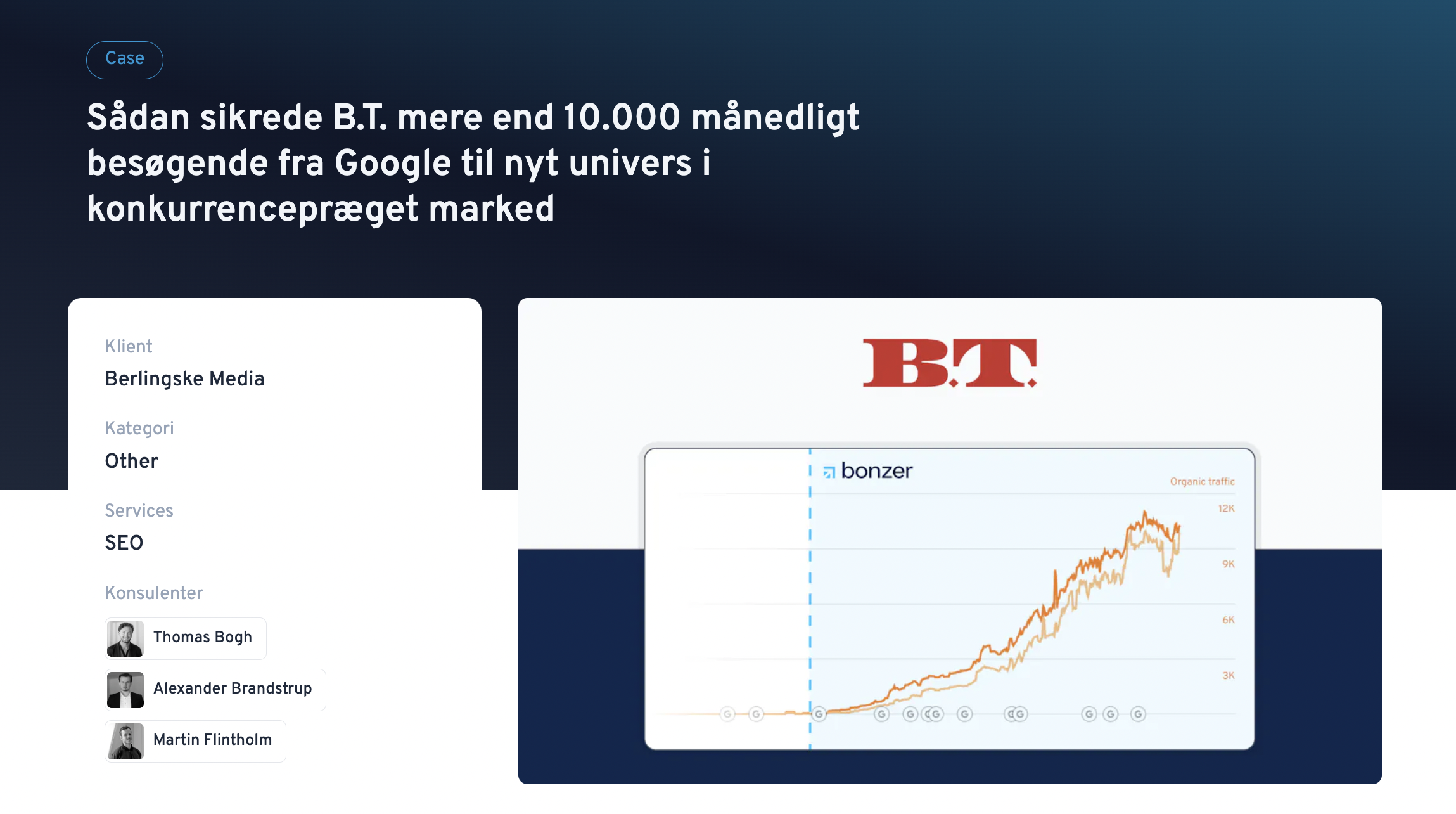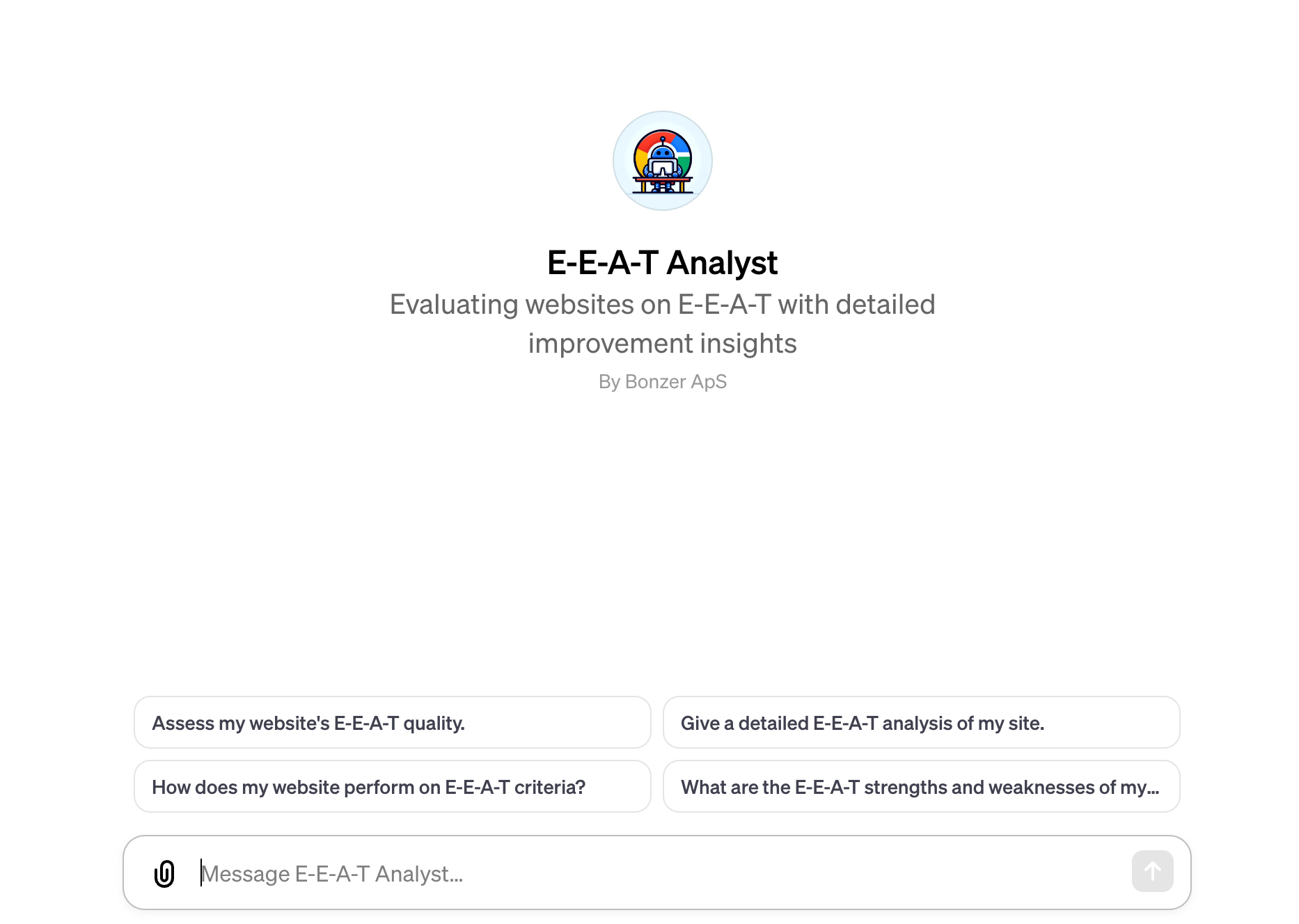/
Research
/
0 min read
Search Engine Recap - Week 47
Search engines are constantly evolving. Therefore, this post is the first of many ongoing reviews of what has been happening on the search engine and in the industry over the past week. Insights that you can use to continuously adapt your strategy to stay among the leaders in your field.

Search News Coverage
During the last couple of weeks, there have been several important topics and news in the field of Search Engine Optimization. Even though this is a weekly update, I'll therefore cover some broader news from November.
This includes everything from major updates in Google's algorithm to news from OpenAI.
What ties them all together is their importance in understanding if you want to stay ahead of the curve.
Major Updates to Google's Algorithm - and How to Understand Them
Topics that have been particularly relevant lately have been Google's November Core Update and Review Update.
Both arrived early in November, and they collectively push Google's search algorithm more towards the updated guidelines that have been talked about for many months now. Guidelines primarily centered around one thing: Helpful Content.
Delivering helpful content to people is the most crucial aspect for Google when a query is made on the search engine. So, let me delve into what these two updates entail and how you should comprehend each of them.
Understanding Google's 2023 November Core Update
Google's core updates are shake-ups in the search engine based on all the minor updates that have come since the last core update.
These updates typically show significant fluctuations in search results across industries, where Google particularly emphasizes E-E-A-T (Experience, Expertise, Authoritativeness, and Trustworthiness).
However, as many have not yet found their footing on how to work with these signals, many businesses are vulnerable. Additionally, with more content being published than ever - thanks to AI tools - many companies have seen declines due to both this and previous core updates in 2023. This is especially due to 'thin' content that isn't properly optimized.

Google Updates
Hence, as a business, it's crucial to familiarize yourselves with these guidelines and work on them daily in your marketing strategy. This is essential if you want to stay abreast of developments and ahead of the competition - and conversely, not lose the rankings you have today.
Understanding Google's 2023 Review Update
It's no secret in online marketing - for those who have been keeping up - that there are extra requirements for your content from Google when selling or comparing products for a consumer.
Whether you work with e-commerce, affiliates, or anything else related to products, Google has over recent years really focused on deprioritizing those who don't follow the guidelines for online reviews (and conversely, prioritizing those who do).
Here, 'reviews' refer to product evaluations where guides have historically been created without human experience. This type of content has historically misled many consumers, and Google is now cracking down on it.
Therefore, Google has updated its guidelines (again, again) for how product reviews should be written. This has become even more relevant as more content than ever is being produced with AI.
It's actually for the same reasons that Google includes “Experience” in their E-E-A-T focus.
So, if you deal with products, the best thing you can do is familiarize yourself with Google's guidelines in this area.
If you want context and examples, we recommend visiting our case with Berlingske Media (currently in Danish), where we delved into a market of product guides that didn't follow Google's guidelines and how we turned the situation to our advantage.

Google Prioritizes Firsthand Knowledge in Search Results
Google has updated its search algorithm to prioritize content that demonstrates firsthand knowledge. This changes how personal perspectives and unique experiences are displayed in search results. A new 'follow' function allows users to follow specific topics, potentially leading to increased traffic for pages producing content on popular subjects.
For some, this might seem like 'old news' as firsthand knowledge aligns with "experience," as we mentioned earlier. The difference now is that this aspect of content is officially more prioritized in search results. You can read more about this from Google here.
The guidance here is to focus on creating content that demonstrates genuine expertise and personal experiences. Also, consider leveraging the new 'follow' function to attract users interested in your topics (the 'follow' function is initially rolling out in the US and will likely extend to other countries).
Google Introduces "Notes" for User Comments in Search Results
Google has introduced a new feature called "Notes," allowing users to view and share tips alongside search results. This adds a new layer of human insight to search results - and in extension, experience.
This is still in an experimental phase, where the feature enables users to contribute knowledge and experiences that can provide website owners with insights into comments on their content.
This could eventually increase engagement, as user reviews and experiences might be directly displayed in search results. This potential enhancement could improve content credibility and relevance. Therefore, it's important to already work more on user reviews and customer loyalty from both a search and conversion perspective.
OpenAI Upgrades the Product
OpenAI has launched a new functionality for its paying subscribers called 'Custom GPTs.' This functionality allows personalization of GPTs, engaging with AI machinery. This could involve building a specialized GPT with features catering to both unique and broad interests. Users can now build GPT chatbots without extensive coding experience.
This opens up opportunities to optimize both internal and external processes, which we, at Bonzer, are continuously working on. Understanding how to develop and integrate GPTs with external data and systems through APIs can expand the application and comprehension of AI.
For instance, based on our knowledge and experience, we've built an E-E-A-T GPT Analyst that helps our internal and external teams understand how websites perform on E-E-A-T and which challenges need addressing. You can see an example below.

Want insights into the tool? You can request an SEO audit of your site.
The ability to adapt and integrate GPTs with specific business needs and external data can significantly enhance analyses, paving the way for more targeted and efficient strategies.
This underscores - again - the role of AI in future marketing, something that becomes increasingly crucial as Google's search engine becomes more SGE-based (Search Generative Experience).

CPO & Partner
Thomas is the CPO (Chief Product Officer) and Partner at Bonzer, which means his day-to-day focus lies in constantly analyzing Google's algorithm and developing SEO as a product. Thomas has worked with SEO for several years with a strong passion for sharing his knowledge on how businesses can best implement SEO into their operations. In addition to Bonzer, Thomas contributes his expertise to readers at publications like Search Engine Journal, DanDomain, and Detailfolk. He also teaches Digital Media Strategy at Copenhagen Business School and SEO at DMJX in Copenhagen. If you have any questions or requests regarding the SEO universe, feel free to contact him at [email protected].

Let us show you an SEO strategy that can take you to the next level
A brief meeting, where we review your position in the market and present the opportunities.
Let us show you an SEO strategy that can take you to the next level
A brief meeting, where we review your position in the market and present the opportunities.